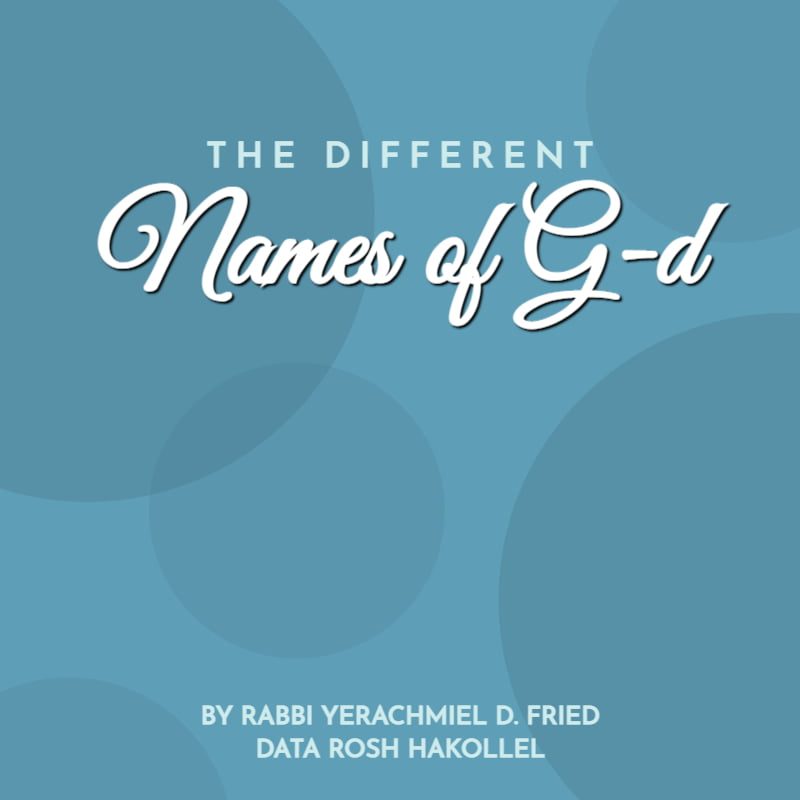Ask the Rabbi: The Different Names of G-d. By Rabbi Yerachmiel D. Fried

Ask the Rabbi: The Different Names of G-d. By Rabbi Yerachmiel D. Fried
Dear Rabbi Fried,
Something has bothered me for years with the prayer service and many verses and it never occurred to me to ask someone. If we believe there is only one G–od, why do we refer to him with so many different names? It almost feels like we are talking to a number of different gods when sometimes we pray to A-donai, sometimes to Elo-him, etc? Please explain and I thank you in advance.
Harvey L.
Dear Harvey,
Great question!
The important concept to understand is that the Names of G-d are not describing G-d Himself. The essence of G-d is above names, descriptions as our limited minds have no grasp whatsoever of G-d’s essence.
When we assign a name to something, we fit that thing or being or concept into a finite description.
The first task given to Adam after his creation was to assign names to all the animals, (Gen. 2:20). To do he needed to delve into the essence of each animal and to see its purpose in the master plan of creation.
A person’s name is said to be divinely inspired and to define one’s makeup and their mission in the world.
This goes to core of the meaning of the word “name” in Hebrew, or “shem”. The word shem is spelled shin mem, the same way the word “sham” is spelled, which means “over there”. There is a core concept that the same spelling in Hebrew reveals a deep connection between the two seemingly unconnected concepts. What is the connection between “name” and “over there”?
Every creation has its roots sham, “over there”, meaning in heaven. From heaven stems its essence, the word which was uttered at the time of its creation. That word is its name, its shem. The word “shomayim”, or heaven, is a plural; the sum total of all the “over there’s”.
The process of naming is something that does not work when it comes to a being Whom is infinite and belongs to another realm completely.
If so, what are the meanings of the Names of G-d?
The sages explain that the Names of G-d are not in any way attempting to describe G-d Himself, rather they are description of the way G-d interacts with the world. We refer to G-d not as His essence, rather by His actions; although His essence is above our grasp His actions are within our ability to analyze and fathom.
At times, G-d shows what seems to us to be compassion, at other times loving kindness. There are situations when He finds it necessary to mete out strict judgment. During certain periods of history G-d reveals His presence in a way which is clearly noticeable, at other junctures He sees fit to hide His existence. There are times when all the above could be happening simultaneously. These interfaces are what we attempt to learn, understand and fathom, revealing G-d’s connection to us and the world.
The different names of G-d describe these interactions and more.
We sing about this in the well-known “An’im Zemiros” song recited at the end of the Shabbos prayer service, within which we say: “I shall relate Your glory, though I see You not; I shall allegorize You, I shall describe You, though I know You not…Your greatness and Your strength, they described the might of Your works. They allegorized You, but not according to Your reality, and they portrayed You according to Your deeds…”
May we merit the insight to understand the deep connections we have with G-d in His interactions with us, leading to a profound and loving relationship.




